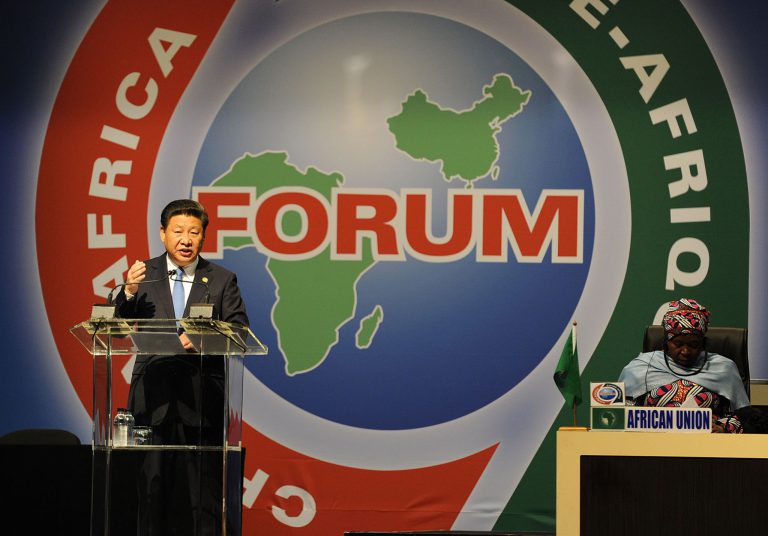
The President of China has announced plans to become an active education partner for Africa, providing US$60billion of funding over the next three years so the continent may develop its higher education sector.
President Xi Jinping has developed a number of strategies to boost his country’s cooperation with Africa, which includes as many as 40,000 training opportunities and 30,000 government-funded scholarships.
The President joined dozens of African leaders at a summit in Johannesburg earlier this month to announce the new policies, which have been designed to aid Africa’s independent and sustainable development.
China To Splash US$60bn on Africa Partnership – https://t.co/D7YAo0NgNt
— Africayaa (@africayaa) December 10, 2015
The summit, called Africa-China Progressing Together: Win-Win Cooperation for Common Development, is the second of its kind under the 15-year-old framework of the Forum on China-Africa Cooperation (FOCAC), which connects China with 50 African countries that have previously established ties, along with the Commission of the African Union.
China’s official Xinhua News Agency reported the country’s plans to develop vocational education centres across regions of Africa, on top of a number of Colleges that will accommodate the training of 200,000 African technicians.
President Xi Jinping also announced plans to invite as many as 200 African students to China, as well as the annual opportunity for 500 African academics to study in his country, and the comprehensive training of 1,000 African media professionals.
China-Africa relations reach comprehensive strategic cooperative partnership https://t.co/nFYI11TUA7 pic.twitter.com/aNzqCbBkDg
— EL Reports (@ELReports) December 9, 2015
China’s proposals follow a far-reaching agreement on educational cooperation signed by the BRICS regions- Brazil, Russia, India, China and South Africa – in November. The treaty called for a greater level of joint research and increased collaboration in postgraduate matters and co-publishing.
China has provided African scholars with government funding since the 1950s, and according to University World News, there are currently more self-supported African students at university in China than there are scholarship or award-holders, demonstrating China’s rising popularity as a desirable study destination among African students.
“One of the most important aims of the China-Africa educational cooperation is to enhance capacity building on both sides. A number of institutional development projects have been developed and implemented in recent years,” says NORRAG, the independent Swiss network for international policies and cooperation in education and training.
Is Africa-China partnership discourse celebrating $260+ donation to Africa progressive? How much will China be taking from Africa?
— Puleng LenkaBula (@LenkaBula) December 9, 2015
According to the NORRAG network, 79,000 African students chose to study at universities based in China between 2000 and 2011.
“These linkages represent an effective mechanism for tapping into the reservoir of China’s university expertise to strengthen African universities,” adds NORRAG.
Dr Nico Jooste, President of the International Education Association of South Africa and Director of International Education at Nelson Mandela Metropolitan University, highlighted that the strategies aim to improve both vocational and higher education.
President Zuma described China’s partnership with Africa as a “win-win” relationship.
— Africa Facts Zone (@AfricaFactsZone) December 8, 2015
“Collaboration in the education of future workers, between educators of both countries as well as other BRICS countries, is of critical importance,” he told University World News.
Although the plans aim to encourage more African students to study in China, Jooste hopes the Chinese government will promote study in Africa, inspiring overseas students, who might otherwise have chosen countries like the USA and Canada, to study at an African-based university instead.
He claims increased mobility in Africa will enable talented overseas workers to attain the skills needed to become an effective member of the African workforce, which would aid future economic growth across regions of Africa and the world.
“It would be of great importance that institutions take control of student and academic staff mobility as this is the only way that interpersonal understanding and collaboration would be enhanced,” Jooste concludes.
Additional reporting by University World News.
Image via AP Images.
Liked this? Then you’ll love these…
16 Countries Enter the BRICS Rankings for the First Time Ever
Crowdfunding Platform Provides £100m for Prospective Asian and African MBA Students







